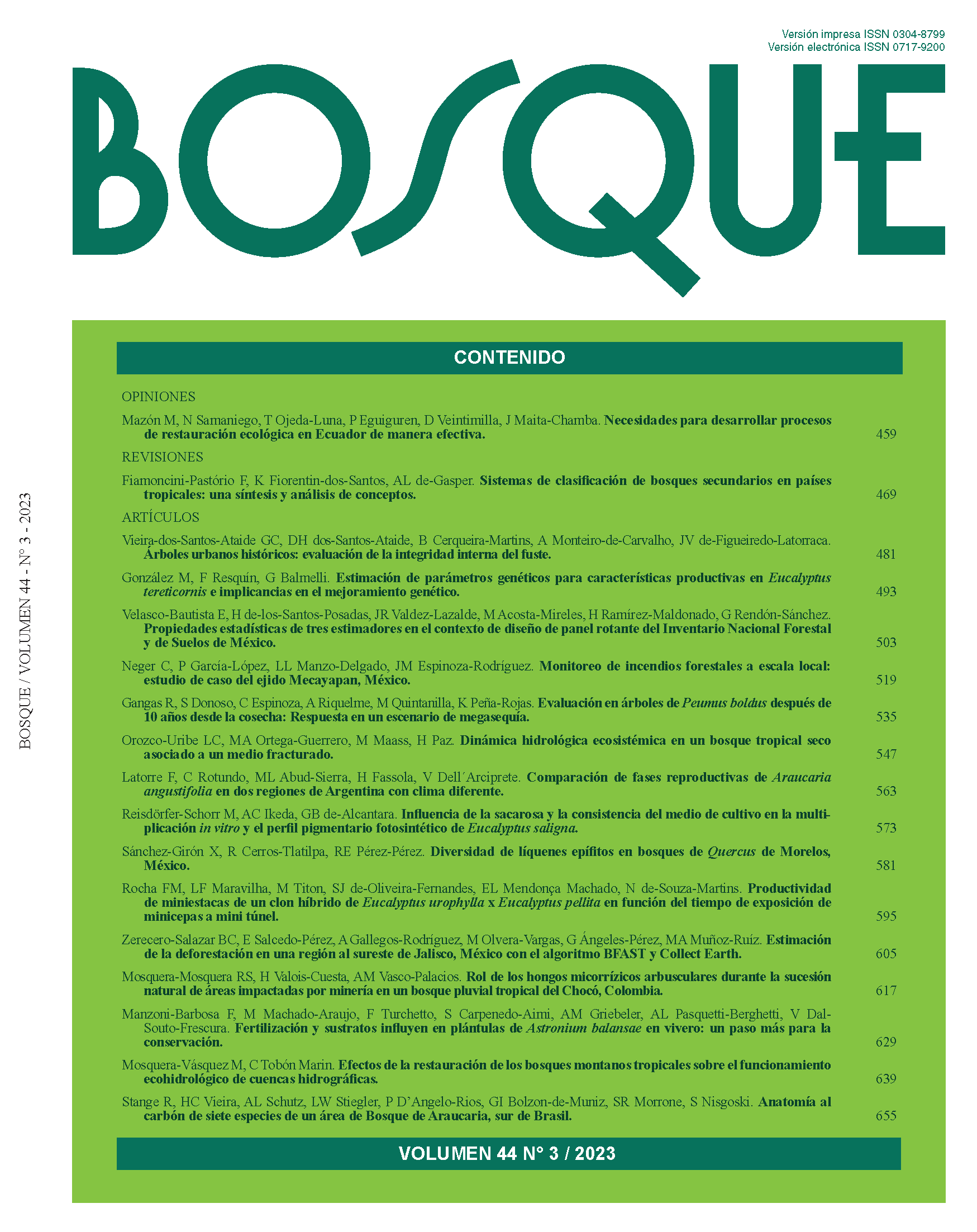Classification systems for secondary forests in four neotropical countries: Synthesis and conceptual analysis
Main Article Content
Abstract
A forest successional stage classification system is an important tool for forest management and ecosystem protection. This review aimed to compare the legal definitions and classifications of primary and secondary forests adopted by four tropical countries: Brazil, Argentina, Panama, and Costa Rica. Two socio-economic and four structural criteria were established and compared among the countries. Only Argentina clearly underpins its ratings with scientific studies, and only in this country do social groups participate in the development of the law. Brazil and Argentina had the highest number of parameters to differentiate forest types. According to our findings, we encourage all countries to update their legal systems based on scientific information and include popular participation in the discussion. This would reduce conflicts of interest and allow for a better reconciliation of forest conservation and sustainable development.

